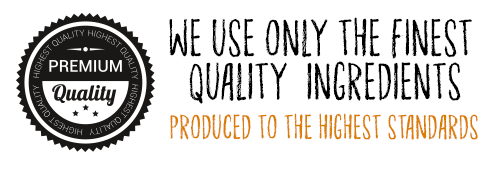In September 2011 new research was published by the Journal of Endocrinological Investigation shedding further praise on CoEnzyme Q10 for its part in improving male sub-fertility. This essential, ubiquitous nutrient, also aptly known as ubiquinone, plays a central role in many of the body systems. It is found in the ‘engine room’, the mitochondria, of each cell within our body and is needed to produce a compound called adenosine triphosphate, or ATP. ATP is the primary source of energy for muscle contraction and protein and is therefore vital for maintaining the healthy muscle contractions of the heart and providing energy for the brain and liver. Another of its key functions is as an antioxidant, repairing the damage in the body caused by oxidative damage. The way in which we live in the 21st century exposes us all to heightened levels of oxidative damage via environmental pollutants, poor diet, smoking, alcohol and toxins from plastics or mobile phones for example.
So what has all of this got to do with fertility?
Sperm cells are largely made of protein and depend on CoQ10 for synthesis. Equally, female eggs depend on CoQ10 rich mitochondria almost exclusively for their energy, which becomes reduced as the eggs, and we, age. CoQ10’s potent antioxidant abilities may be able to protect egg and sperm cells from this oxidative and toxic damage. Without sufficient levels of CoEnzymeQ10 available, the quality and quantity of the egg or sperm may be compromised and therefore so is fertility. This cycle is more prevalent in those who are attempting conception at a ‘later’ stage in their fertile life. As our fertility peaks in our early 20’s and the average age for pregnancy in 2011 is 29 years old, many of us are conceiving in the ‘later’ stage of their fertile life. The body’s own production of CoEnzyme Q10 peaks at around the age of 21, therefore in combination with the slow reduction in quality of our eggs or sperm over time, many of us may also be experiencing low levels of CoEnzymeQ10.
Where’s the evidence?
Studies show that consuming additional CoQ10 has health benefits, including enhancing fertility in males and possibly, in females. A further study in 2009 demonstrated that improving intake of CoenzymeQ10 can improve both sperm shape, motility and mobility, thereby improving the rate of male fertility. The study examined the effects a 300 mg daily dose of CoQ10 had on men with infertility problems. After six months of CoQ10 supplementation, the researchers concluded that there was significant improvement in both motility and density of sperm cells.
And what about female fertility? Again in 2009, the Journal of Fertility and Sterility published a study that investigated the role of CoEnzymeQ10, along with other nutrients including selenium, in stimulating mitochondria production and thereby improving subsequent egg quality. The researchers found that CoQ10 supplementation increased the quantity and quality of eggs ovulated in the test group.
How do we improve our CoEnzymeQ10 levels?
Rich sources of dietary CoEnzymeQ10 include mainly meat, poultry, and fish. Other relatively rich sources include soybean and canola oils, and nuts. Fruits, vegetables, eggs, and dairy products are moderate sources of CoEnzymeQ10. However be mindful of the source of these foods as intensive farming (ie non-organic produce) reduces the amount of CoEnzymeq10 within food. Equally, pay attention to your cooking methods; steam your vegetables as approximately 14%-32% of Coenzyme Q10 is lost during frying of vegetables and eggs
You can also take coEnzymeQ10 in the form of a food supplement. CoQ10 is a fat-soluble nutrient so it should be taken with food that contains some fat in order to be absorbed and used by the body. In addition, smaller, multiple daily doses of CoQ10 are able to maintain more stable levels in the blood compared to larger single doses. Thus, instead of taking 300 mg of CoQ10 as a single daily dose, break it down to three doses of 100 mg.
J Endocrinol Invest. 2011 Sep;34(8):e224-8. Coenzyme Q10 improves seminal oxidative defense but does not affect on semen parameters in idiopathic oligoasthenoteratozoospermia: A randomized double-blind, placebo controlled trial. Nadjarzadeh A, Sadeghi MR, Amirjannati N, Vafa MR, Motevalian SA, Gohari MR, Akhondi MA, Yavari P, Shidfar F.
J Endocrinol Invest. 2009 Jul;32(7):626-32. .Coenzyme Q10 and male infertility.Balercia G, Mancini A, Paggi F, Tiano L, Pontecorvi A, Boscaro M, Lenzi A, Littarru GP.








